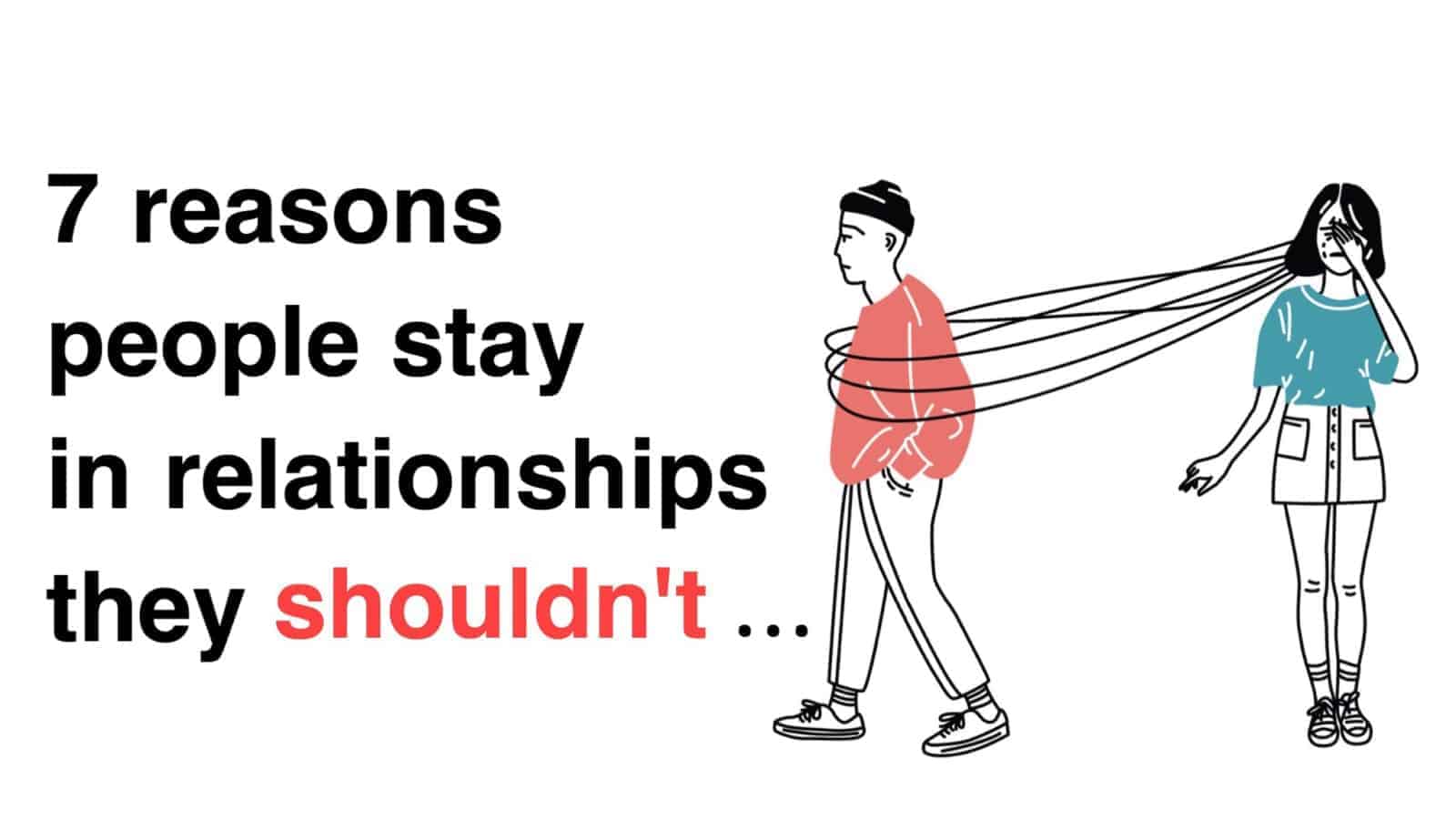1. Fear of Being Alone
One of the primary reasons people stay in relationships they shouldn’t is the fear of being alone. This fear can be deeply rooted, often linked to worries about loneliness, social judgment, or the belief that they won’t find love again. Psychology explains that this fear can be more powerful than the desire for a healthy, happy relationship, leading people to stay in unsatisfactory situations.
2. Low Self-Esteem
Low self-esteem plays a significant role in why people remain in bad relationships. When someone has a poor self-image, they may believe they don’t deserve better or that no one else will love them. This lack of self-worth makes it difficult for them to leave, even when they are aware the relationship is harmful.
3. Investment of Time and Emotion
The investment theory in psychology suggests that the more time and emotion someone invests in a relationship, the harder it is to leave. This can include years spent together, shared memories, or even shared assets and children. The fear of losing these investments can keep people in relationships long after they should have ended.
4. Hope for Change
Many stay in unhealthy relationships because of the hope that their partner will change. This hope can stem from instances where the partner displayed the desired behavior, leading to a belief that the relationship can improve. Psychology shows that this intermittent reinforcement of positive behavior can create a powerful bond, despite the overall negative nature of the relationship.
5. Feeling of Obligation
A sense of duty or obligation can keep people trapped in unsuitable relationships. This could be due to cultural, social, or familial expectations. For example, the belief that one must stay for the sake of children, or because of societal pressure to maintain a certain image, can be compelling reasons for staying.
6. Fear of Financial Insecurity
Financial dependence or fear of financial insecurity is another significant factor. For individuals who rely on their partner for financial support, the prospect of leaving can be daunting. This fear can be especially prevalent in relationships where one partner has significantly more financial power than the other.
7. Emotional Dependency
Emotional dependency, where one’s emotional state and self-esteem are heavily reliant on their partner, can make leaving a relationship extremely challenging. This dependency creates a situation where, despite the relationship being unhealthy, the individual fears losing their main source of emotional support.
Understanding the Complexities of Relationships
Psychology helps us understand that the reasons people stay in relationships they shouldn’t are complex and multifaceted. These reasons often involve a combination of emotional, psychological, and practical factors.
The Role of Attachment Styles
Attachment styles, formed in early childhood, also play a role in why people stay in unhealthy relationships. Those with anxious or avoidant attachment styles may find it harder to leave due to fears of abandonment or intimacy.
The Impact of Social and Cultural Factors
Social and cultural factors can also influence one’s decision to stay in a relationship. Social stigma around divorce or separation, cultural beliefs about relationships, and peer pressure can all play a role.
Seeking Help and Support
It’s important for individuals in such situations to seek help and support. This can be through therapy, counseling, or support groups. Getting professional assistance can provide insights and strategies for addressing the underlying reasons for staying in the relationship.
Empowering Oneself to Make Healthy Choices
Understanding these psychological factors can empower individuals to make healthier choices for themselves. Recognizing the reasons behind their decision to stay can be the first step in making a change.
Exploring the psychological reasons why people stay in relationships they shouldn’t provides valuable insights into human behavior and emotional needs. It underscores the importance of self-awareness, self-esteem, and the courage to make choices that lead to healthier and more fulfilling relationships.
Isn’t it enlightening to delve into the psychological aspects of relationships? It helps us understand ourselves and others better, fostering compassion and the pursuit of personal well-being. Here’s to making choices that support our happiness and mental health
